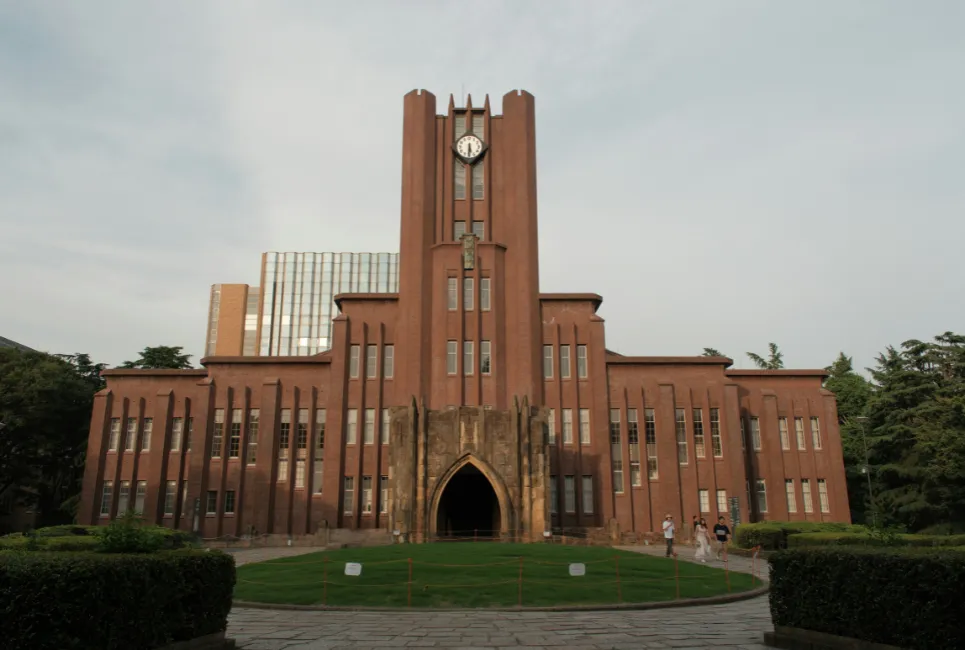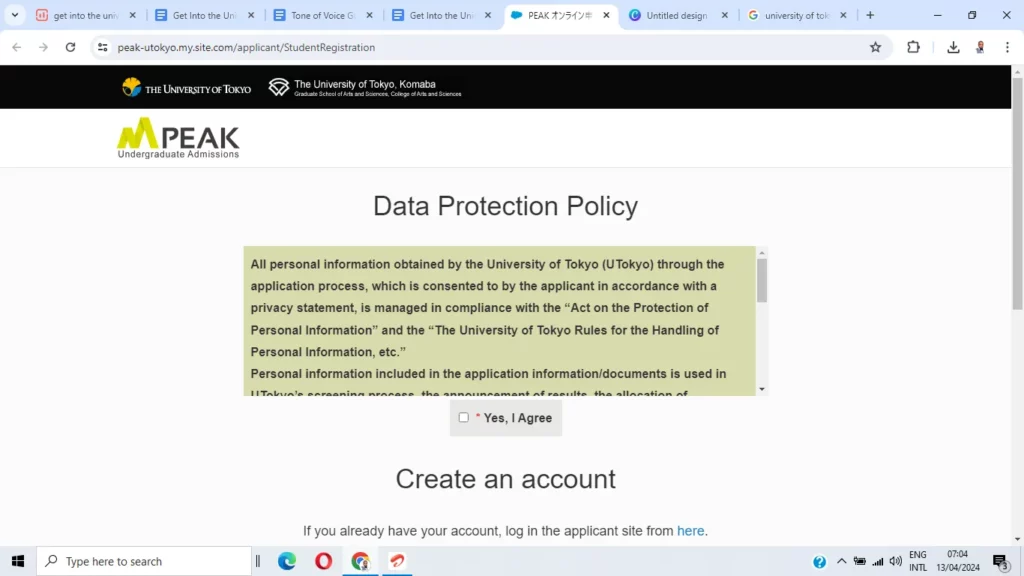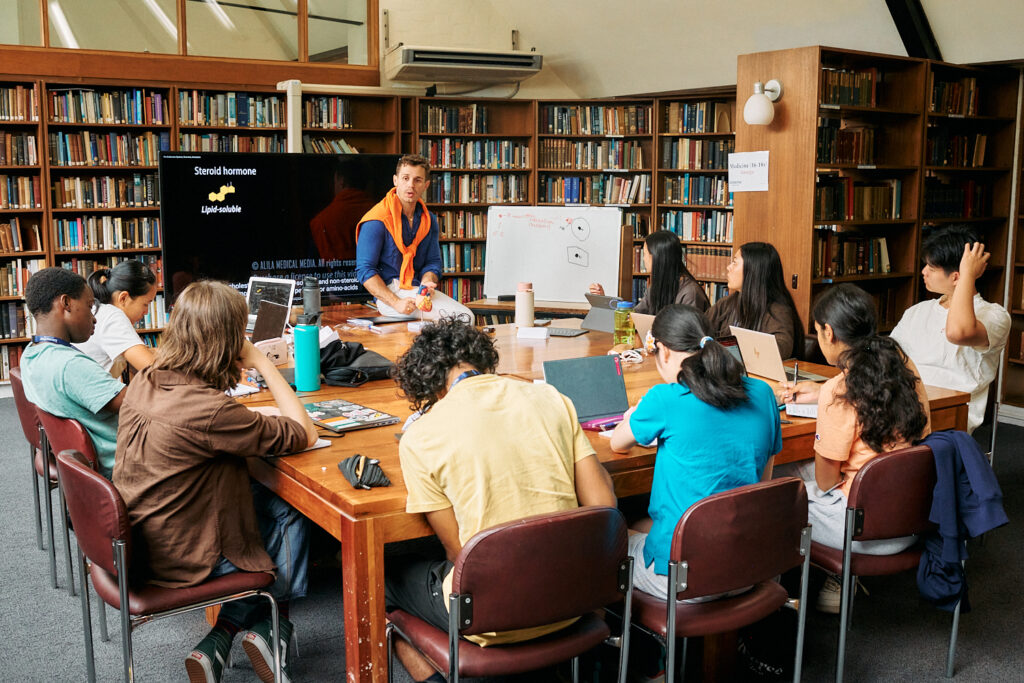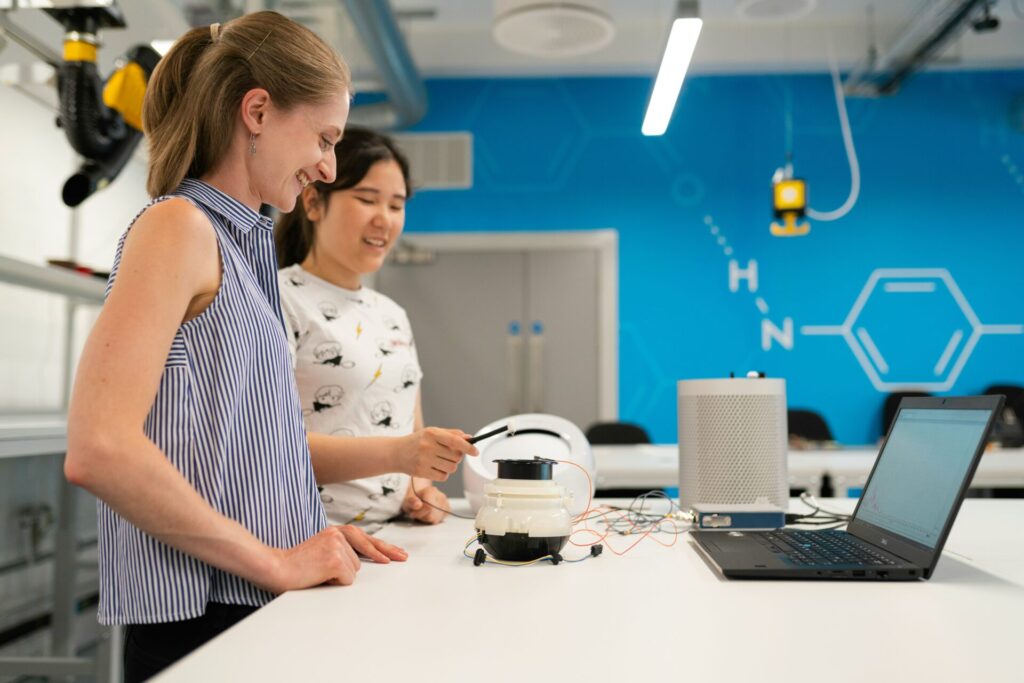Are you dreaming of attending a summer school in Tokyo? Have you ever thought about studying at the University of Tokyo (uTokyo)? If so, you’re in the right place.
Founded in 1877, UTokyo is a prestigious university with a proud heritage of excellence and a history of churning out exceptional graduates who have gone on to achieve great things.
The university is known for its two-year Junior Division, in which all first- and second-year students in its traditional Japanese programmes undergo comprehensive liberal arts education before transitioning to their chosen field of expertise in the remaining two years.
From the main campus in Hongo to the Komaba and Kashiwa campuses, students engage in a rigorous academic environment, pursuing a wide range of degrees across disciplines such as humanities, sciences, and engineering.
In this article, we share everything you need to know about this world-renowned institution.
We’ll also provide you with a practical guide to increase your chances of admission. We’ll walk you through the essential steps you need to take, particularly for those aiming for undergraduate studies.
From preparing for exams to perfecting your application, we’ve got you covered. So, if you’re ready to take the first step towards your academic goals in one of the most exciting cities in the world, let’s get started!
What is the University of Tokyo known for?

The Yasuda Auditorium, the University of Tokyo
The University of Tokyo is well-known for its academic and research excellence. Quite unusually, especially for universities in Asia, the University of Tokyo runs undergraduate and graduate programs taught entirely in English.
One of the quality indicators for universities is how often others cite academic papers by their researchers. For the leading Tokyo University, research from its academic community received 581,162 citations between 2018-2022.
Students can also look forward to the university’s expansive collection of books and other materials.
Across its multiple locations and centres, the University of Tokyo has close to 10 million materials in its collection of books, journals, and other literary sources, both in Japanese and other languages.
The University of Tokyo is also known for its alumni community achievements. The university has produced 16 of the 64 (25%) past prime ministers of Japan despite there being over 800 universities in the country.
If you have entrepreneurial aspirations, the University of Tokyo is also famed for supporting members of the University community in their entrepreneurial pursuits.
According to the University of Tokyo, as of March 31, 2023, it has supported 526 UTokyo-related start-ups.
The university, particularly the Hongō campus, is famous for its beauty. The numerous 120-year-old ginkgo trees, Sanshiro Pond, and the famous Akamon Red Gate all add to the university’s uniqueness and alluring beauty.
What is the ranking of the University of Tokyo?
The University of Tokyo, the first national university in Japan, has consistently ranked relatively high across the two most popular ranking providers.
On the Times Higher Education World University Ranking, uTokyo ranks 29th in 2024, an improvement over its 39th and 35th position in 2023 and 2022, respectively.
That said, its current ranking is still lower than its best ranking of 23, achieved in 2014 and 2015.
On the QS World University Rankings, it’s currently ranked as the 28th best tertiary institution globally.
Its 2024 rank is five places below its 2023 rank, where it placed 23rd on the list. Its best ranking on the QS World University Rankings was 22nd in 2020.
How hard is it to get into the University of Tokyo?
As expected of most prestigious universities, the competition to enter the University of Tokyo is moderately competitive, even more so for international students.
According to the university’s records, international students make up 15% of its total student population (28,218), including both graduate and undergraduate students.
What is their acceptance rate?
Based on its last admissions round, the University of Tokyo had an acceptance rate of about 32.2% for undergraduate studies and about 52% in graduate school (MA programmes 47%; PhD programmes 72%).
Per its records, there were 3,085 successful applicants out of 9,559 total applications. This figure doesn’t factor in those who received admissions through other channels like PEAK.
The average acceptance rate paints a partial picture: some divisions or departments are more competitive than others.
For example, the acceptance rate for the most competitive stream, the Natural Sciences II stream, is 23.1% compared to the average rate of 32.3%. There were only 97 successful undergraduate admissions from 420 applications. The acceptance rate for other streams is as follows:
- Humanities and Social Sciences I – 32.8%
- Humanities and Social Sciences II – 32.51%
- Humanities and Social Sciences III – 33.26
- Natural Sciences I – 39.4%
- Natural Sciences II – 23.8%
What documents or grades are required?
To apply for the English-taught PEAK programs, you must submit the following required documents:
- Your official school transcript.
- Essay.
- Official results of a standardised test like the Scholastic Assessment Test (SAT), ACT, or IB. On the PEAK portal, it is written as “Official Examination Results for Academic Ability.”
- Official test score of English proficiency. The University accepts both TOEFL, Cambridge English Qualifications, and IELTS. This may not apply to you if you’re from an English-speaking country.
- Certificate of Expected Graduation, proof that you’re about to complete your studies.
- School Profile. Also, it is only applicable to some applicants.
- Evaluations provided by two individuals on your academic ability.
- “Other documentary evidence of achievements”
- Payment receipt for the JPY 5,000 application fee if paid via credit card.
In terms of grade, the University of Tokyo expects at least a score of 7.0 in IELTS, 100 or above in TOEFL IBS, or 185 or above in Cambridge English. The minimum grades for standardised tests are:
- IB – “38 points out of 42 for the six subjects and at least 2 points for combined TOK and EE”
- SAT – A score of 1480 or above; 750 or above in Math for those applying for the PEAK e Environmental Sciences Program
- ACT – A e score of 33 or above
- International A-level – Minimum of 3 grades of A or above at A-level
- European Baccalaureate – Overall mark of 87% or above
For those applying for the undergraduate degree programs offered in Japanese, the above requirements are largely the same, except evaluations aren’t required, and a personal statement of purpose replaces the essay.
Such applicants must also prove Japanese proficiency by passing the Examination for Japanese University Admission for International Students (EJU).
There are also specific requirements in terms of grades for different national qualifications or diplomas acceptable in place of the above-standardised tests.
For example, an international student from the United Kingdom must achieve “at least three grades of A or above at A level.”
You can find details for other countries like Malaysia, Canada, New Zealand, Australia, and more here.
That said, please note that the requirements are subject to change, so please always check the official University of Tokyo website for the most up-to-date requirements.
Is it hard to get into the University of Tokyo as a foreign student?
Hard wouldn’t be the appropriate word to describe your chances of getting into the University of Tokyo. We’d instead use the word rigorous.
You’ll need to prepare adequately for the screening tests. More importantly, take your English language proficiency test and other standardised tests seriously, as uTokyo has a high benchmark.
The University of Tokyo prescribes two admissions routes for those who wish to enrol in the university’s traditional undergraduate programs in Japanese: the general screening test for those who graduated from Japanese high schools and the special screening test for those who attended school abroad.
If they pass the document review phase, PEAK students pursuing the environmental science program will need to take an online mathematics examination.
The questions range from algebra to calculus and geometry. If you’re wondering what the questions look like, you can check here.
There’s also the small matter of an interview where you must have live questions. You can also find sample interview questions here.
Your ability to get into the University of Tokyo will depend on your high grades in the language proficiency tests, standardised tests, and screening exercises.
Join the Immerse Education 2025 Essay Competition
Follow the instructions to write and submit your best essay for a chance to be awarded a 100% scholarship.

What is the University of Tokyo looking for?
According to the university’s admission policy, “Students gaining admission into the University of Tokyo are expected to have sound ethics, a well-grounded sense of responsibility, an independent nature, and the ability to take action.”
Additionally, uTokyo prioritises applicants who show curiosity for different subjects and have a high aptitude for learning. Prospective participants must also demonstrate:
- An apparent determination and enthusiasm to study at the university
- A strong desire for personal growth
- A willingness to adopt a broader world outlook that forces them to learn about numerous subjects and have multiple interests
Regarding its test, uTokyo notes that “the University does not seek to admit students who focus solely on entrance examination scores and pour all of their narrow-minded efforts into studying for the test.”
This suggests that while the test is important, the university is looking for a total student who excels not only in the classroom but also outside of it.
What do you need to get into the University of Tokyo
To get into the University of Tokyo, you’ll need to pass the first and second screenings, whether you’re applying for the traditional Japanese or PEAK programs.
The first screening is a comprehensive document review of the requirements we provided earlier. Passing this phase will depend on meeting the requirements, such as the minimum score on your English proficiency and standardised tests.
Those going through the traditional Japanese pipeline must also pass the academic ability test.
The second screening is primarily a live interview for both categories of applicants. However, those in the traditional Japanese pipeline must complete a written essay during the second screening in addition to the live interview.
How to apply to the University of Tokyo

You can apply directly on the University of Tokyo admissions portal. The application portal for the PEAK program is here.
Register and supply all the required documents using the stipulated templates and naming conventions.
Then, pay the stated application fee and submit your application. Ensure you triple-check everything before submitting.
How can you increase your chances of getting into the University of Tokyo?
We’ve established that the University of Tokyo seeks students with demonstrated prowess beyond the classroom.
You must show the admissions board that you meet the institution’s philosophy and mission to “educate intellectual citizens with a futuristic global outlook.”
Given the school’s overarching philosophy and admissions policy, the tips below can increase your chances of beating others to gain admission into this prestigious institution.
These tips apply if you’re aiming to attend any of uTokyo’s graduate schools.
1. Conduct research into the University of Tokyo
UTokyo’s admission policy requires students to “demonstrate vigorous enthusiasm and interest in studying at the University.”
Considering there’s a live interview session, doing quality research into the school’s history, vision, mission, ethos, programs, resources, etc., will prepare you to answer questions set up to determine how highly the school ranks on your list of admission priorities.
Research will also tell you if you can meet the requirements and tuition fees. The tuition fee for the PEAK programme was JPY 535,800.
2. Spread your wings
The University of Tokyo wants students who vigorously pursue their interests and use these pursuits to learn about a broad range of topics in and outside the classroom.
So, take that internship, volunteer at a non-profit, build a pet project, enter competitions, join a class, learn a foreign language, and attend a summer school.
The key is to ensure you tie the extracurricular activity(ies) to an enduring personal interest. This makes it easy to discuss such activities freely during your interview.
3. Apply
Applying early can show the admissions board that the University of Tokyo is your first choice. This tip ties to the theme of showing “vigorous enthusiasm and interest.”
Moreover, competition is less during early admissions, making your application stand out even further.
4. Write a high-quality, thought-provoking essay
Your essay is a chance to convince the admissions team at the University of Tokyo that you deserve a spot. It’s a chance to shine a light on your academic and personal achievements, career aspirations, interests, and long-term goals and how uTokyo can help you achieve them.
Writing an essay or statement of purpose can feel daunting, but it doesn’t have to be. A course like the Online Research Programme by Immerse Education can help you hone your writing and research skills.
Our guide, “How To Write A Personal Statement: 10 Tips + Student Questions Answered,” is also helpful.
5. Provide authentic recommendation letters
Recommendation letters can also dramatically increase the odds of your application being accepted. However, most recommendation letters are dull, lack authenticity, and use superficial words that suggest barely any relationship between the writer and the applicant.
One way to eliminate such issues is to find someone you actually have a relationship with who can describe your academic ability and work ethic with valid examples to back up their claims.
Takeaway: Utilise these useful essential steps for admission success at uTokyo
Getting into the University of Tokyo requires preparation and passion.
Whether you aim for traditional Japanese programs or English-taught PEAK courses, it’s vital to understand uTokyo’s ethos and engage in extracurriculars that highlight your interests.
Apply early, craft a compelling essay, and secure genuine recommendation letters to showcase your commitment and character.
Beyond grades, uTokyo seeks individuals who thrive in a diverse, intellectually stimulating environment. So, gear up, prepare diligently, and embark on your journey to uTokyo with renewed confidence!
Immersive Education offers multiple online and classroom-based programmes that can show the admissions team at uTokyo or any university that you’re an intellectually curious student with a vast array of interests.
Join a pre-university summer programme to stand out in the competitive pool of applicants. If you are interested in participating in a summer programme in Tokyo, register your interest here and start your journey towards academic excellence.




















